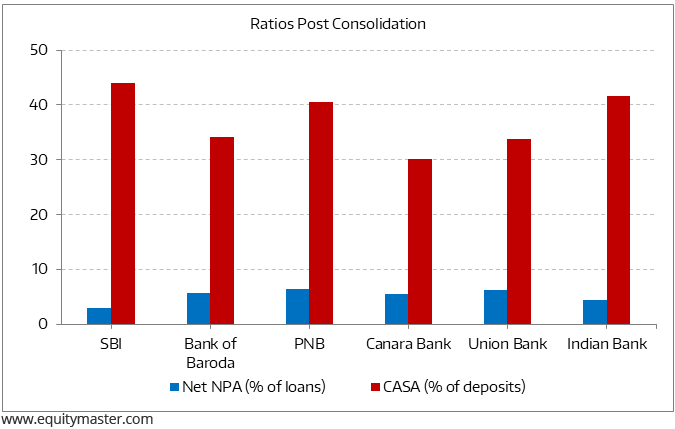Indian Indices Extend Gains; Tata Motors & ONGC Climb 5%
Share markets in India have extended early morning gains and are presently trading higher. Investors are cautious ahead of the release of Consumer Price Index-based inflation and the Wholesale Price Index-based inflation data due later today.
Barring IT sector and consumer durables sector, all sectoral indices are trading on a positive note with stocks in the realty sector, metal sector and telecom sector witnessing maximum buying interest.
The BSE Sensex is trading up by 218 points (up 0.6%), while the NSE Nifty is trading up by 57 points (up 0.5%). The BSE Mid Cap index is trading up by 0.8% and the BSE Small-Cap index is trading up by 0.4%.
The rupee is trading at Rs 71.03 against the US$.
Market participants are tracking HUL share price and Delta Corp share price as these companies are set to announce their September quarter results (Q2FY20) later today.
You can also read our recently released Q2FY20 results: Infosys, TCS, IndusInd Bank, Bajaj Consumer Care.
In news from the oil & gas sector, Adani Gas share price is witnessing buying interest today after the company said French energy giant Total SA would acquire 37.4% stake in it.
Shares of the company zoomed around 18% in early trade today on back of the above news.
Reports state that the acquisition is the largest foreign direct investment in India's city gas distribution sector, with the deal giving Total joint control of Adani Gas. The deal is valued at Rs 56.6 billion.
The company in a regulatory filing said, "Total will purchase 37.4% shares in Adani Gas through a tender offer to public shareholders to acquire up to 25.2% shares subject to applicable regulations and purchase the residual shares from Adani Family."
Adani Family and Total SA shareholders will hold 37.4% each and public shareholders will hold remaining 25.2%.
The partnership will develop regasification terminals, including Dhamra LNG, on the east coast of India, market liquefied natural gas (LNG) domestically, and through Adani Gas target to distribute gas to 7.5% of India's population.
In October 2018, Total had signed a memorandum of understanding (MoU) with the Adani Group to form a joint venture for running liquefied natural gas (LNG) regasification terminals at Mundra and Dhamra and roll out 1,500 fuel stations over ten years.
Note that the government has outlined plans to more than double the share of natural gas in India's overall energy mix from 6.2% to 15% by 2030.
On Sunday, oil Minister Dharmendra Pradhan said that India is investing over US$ 60 billion in building a pipeline and terminal infrastructure to support demand and growth.
How this development pans out remains to be seen. Meanwhile, we will keep you updated on all the news from this space.
Moving on to news from the banking sector, Bank of Baroda share price is in focus today after P.S. Jayakumar ended his term as the bank's managing director and chief executive on Saturday without a further extension.
Jayakumar had received a one-year extension after his initial three-year term ended on 12 October 2018.
Note that the end of Jayakumar's term comes at a time when the state-run bank is still in the process of integrating Dena Bank and Vijaya Bank with itself.
The government proposed the merger of the three state-owned banks in September 2018. The merged entity is the third-largest lender in India after State Bank of India (SBI) and HDFC Bank.
Reports state that Jayakumar's exit isn't good news for the bank. The government's move to deny an extension to him does not ensure continuity of the management at a time when the bank is in the process of completing the merger process.
In other news, BOB's asset management arm Baroda Asset Management and BNP Paribas Asset Management India, a wholly owned unit of BNP Paribas AMC Asia have agreed to merge.
The merger is subject to regulatory approvals and other legal approvals, the two companies said on Friday.
Speaking of banks, lower NPA ratio and sustenance of high CASA, in the future, could signal the banks' fitness levels to lend more.
But what could go unnoticed is the efficiency potential of the merged entities.
Post-merger, the employee per branch ratio of the consolidated PSU entities could be in the range of 7 to 9 per branch. This would be almost half that of their private sector counterparts like HDFC Bank and Kotak Bank.
India's Top 6 Public Sector Banks Are Getting Fitter

Leaner operations would mean use of technology to support growth.
So, we won't be surprised if the PSU entities leverage technology at a much bigger scale than their private sector peers, in a few years.
To know what's moving the Indian stock markets today, check out the most recent




Huge upside decade away we’ll regret ignoring today’s opportunities.